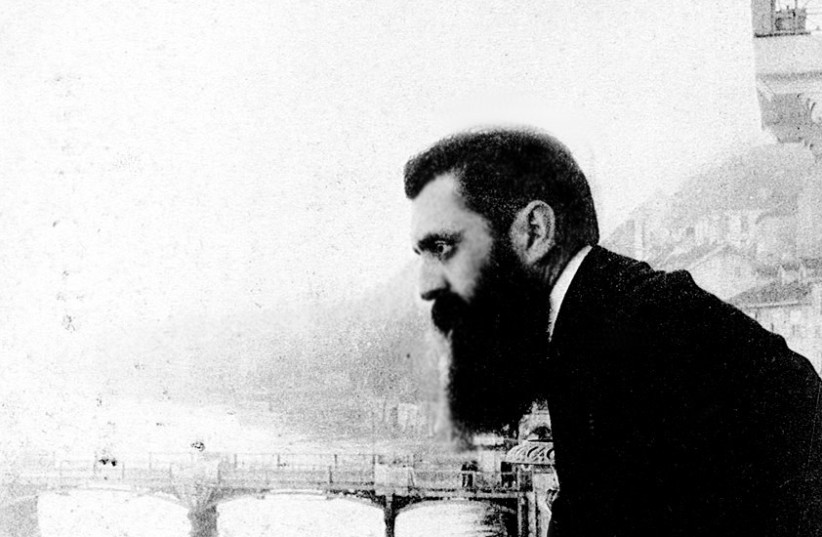In 1897, a Jewish Austro-Hungarian lawyer and journalist convened a conference in Basel, Switzerland that would change the world. This congress would serve as the first international meeting of the Zionist movement and, much as Theodor Herzl predicted, lead to one of the most important developments of the 20th century: the creation of a national Jewish homeland.
Just as delegates converged on that beautiful city 125 years ago, Jewish leaders have now come together again to celebrate the anniversary of that historic moment in an event hosted by the World Zionist Organization. I am honored to have been asked to speak at this important gathering and humbled to share my insights into the continuing scourge of antisemitism – and to reflect on what Zionism means in 2022.
From Basel, a commitment was made to return the Jewish people to their historic homeland built upon the religious Zionism that had animated the faith for almost two millennia. The sheer force of Herzl’s will projected itself into the highest halls of power and engaged in political statecraft against seemingly overwhelming obstacles, resulting in the creation of the State of Israel 50 years later.
While two thousand years of marginalization and persecution as a minority living in the Diaspora – let alone the genocide of six million in the Holocaust – could never be remedied, the pursuit of Israel’s creation generated new hope for the future and transformed the Jewish people’s narrative from one of dispersion and powerlessness into one of strength and concerted action.
As we know, Herzl’s dream was mostly realized. Today’s Israel is a flourishing Jewish state that continues to provide a welcoming haven for Jews around the world and is a pioneering force in areas of science, medicine, technology and agriculture. And yet, Israel’s existence has not “solved” antisemitism, nor is the Israeli state a perfect utopia.

Herzl and his fellow Zionists at Basel could not have foreseen Israel having to defend itself in eight wars since 1948, the still unresolved Israeli-Palestinian conflict, the ongoing threats posed by malicious states like Iran and terror groups like Hamas and Hezbollah, and coordinated international efforts to marginalize and delegitimize the Jewish state, including the absurd claim that “Zionism is Racism” and hateful BDS campaigns.
Antisemitism on the rise
AS JEWISH leaders return to Basel, antisemitism continues to be a grave issue with worrying manifestations that would have been familiar to people living in 1897. We also have seen new forms – like online hate and harassment, or the blaming and scapegoating of Jewish individuals and organizations for the actions of the Jewish state.
Last year, the Anti-Defamation League recorded the highest number of antisemitic incidents in the US since the 1970s. One major spike came during the conflict between Israel and the terror group Hamas in May 2021, when we tracked a 150% increase in incidents, including 15 assaults and grotesque displays of anti-Israel hate.
Jews were brazenly attacked in public places in major cities such as New York and Los Angeles simply for the crime of their faith and identity.
Likewise, in the US and around the world we have seen political leaders and candidates on the far-right parrot antisemitic talking points, and those on the far-left using anti-Zionist rhetoric that is antisemitism at its core.
In Boston, an antisemitic group created a “Mapping Project,” claiming to expose a sinister Jewish conspiracy with interconnected nodes of “Zionism, Policing and Empire.” They invoked classic antisemitic tropes and endangered the entire Jewish community, accusing houses of worship and service-oriented nonprofits of the libel of dual-loyalty.
At ADL, we are doing our best to combat antisemitism from all sides and fighting those who would seek to undermine Israel’s legitimacy. But the fact that such virulent antisemitism is aimed at “Zionists” – i.e., Jews – writ large is perhaps one of the biggest challenges of our time.
As I have said before, anti-Zionism is antisemitism. At this moment, there is a need for the entire Jewish world to stand together against this new and dangerous form of antisemitism.
We cannot guarantee a secure Jewish future without strong efforts to push back against the extreme anti-Zionism rampant in many countries and seeping into international forums and places like legislatures and college campuses.
Despite these obstacles, the Basel anniversary is a moment to celebrate. The Jewish people are much stronger now than we were in 1897. In the same ways that the First Zionist Congress offered strength to Jews around the world and redefined our narrative, we must endeavor to draw strength from that moment and let it nourish us to meet the challenges ahead.
The writer is CEO and national director of the Anti-Defamation League.
